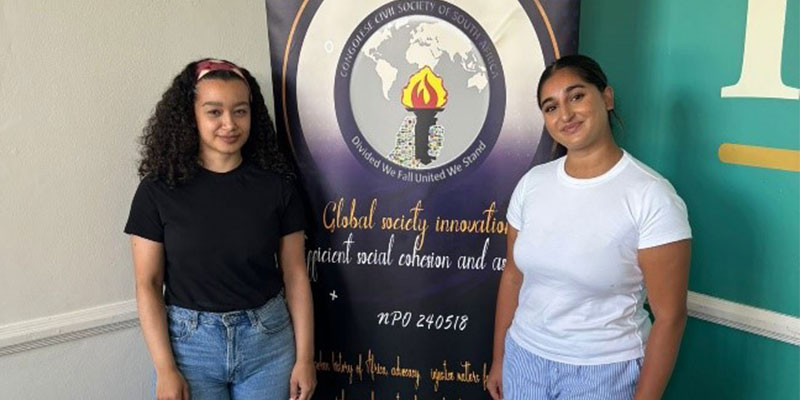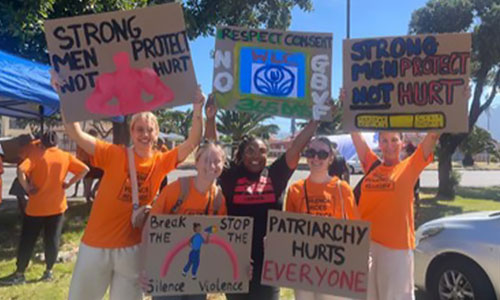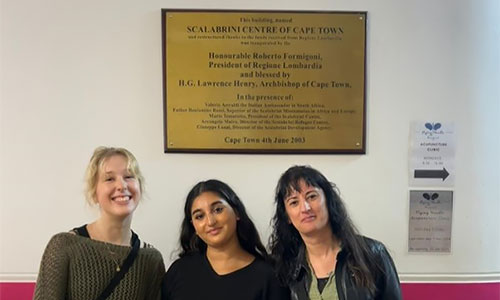Our Human Rights Masters' students on placements in York, Cape Town and globally
Posted on Friday 13 December 2024

A distinctive feature of our Masters programmes, the Human Rights Placement module offers students the opportunity to gain direct experience of fieldwork while working in partnership with non-, inter- and governmental organisations on a range of projects related to human rights.
York UK placements
In York, students worked with York Human Rights City Network, a York-based coalition of civil society organisations, on developing a UK network of human rights cities. The students interviewed activists, academics, and civil servants from different cities across the UK. This research will support the organisation of an event to be held in York in the spring of 2025 and aimed at establishing the network.
Another group of students worked with the York LGBT Forum, a York-based charity which aims to improve LGBT rights in York, North Yorkshire, the United Kingdom and the world, interviewing members of the LGBT community in York as well as service providers and policymakers across the statutory, private and voluntary sector in the city. The project aims to identify blockers for change, potential new models, and commonalities to review and update the existing Hate Crime Action Plan in the city.
South Africa placements
Students working with the International Labour Research and Information Group (ILRIG), a Cape Town NGO, interviewed e-hailing riders in the city and documented their working conditions. ILRIG and the students are seeking to identify barriers and opportunities for supporting e-hailing riders to organise and advocate for their rights.
Another student group has been working with the Women’s Legal Centre to identify the work and impact of the Centre’s Human Rights Defenders Programme.

The programme was established at the height of the Covid-19 pandemic as a network of fifteen community-based feminist activists for providing food security and informal places of safety for women. It continued existence is much needed in the face of ongoing threats such as climate change and its gendered effects.
Students working with the Scalabrini Centre have been conducting research with migrant- and refugee-led movements. The project maps the development, growth and impact of these movements in South Africa, with a particular focus on the Western Cape, and if and how it has influenced the advocacy landscape.

Another student group worked with the York Law School to develop some pedagogical materials for a third-year case study module on human rights for the new LLB in International Human Rights Law. The case study will focus on children and climate activism. The group conducted both in-person and online interviews with climate activists and legal educators to identify the key tensions that could inform the substance of this case study module.
A final group of students worked with the UN Special Rapporteur on contemporary forms of slavery, Professor Tomoya Obokata on identifying, analysing, and discussing examples of effective measures taken by governments and non-state actors to combat the worst forms of child labour, as well as the challenges that remain in eradicating it. The scope of their project was global and hence they conducted online interviews with human rights and humanitarian professionals who have specific subject expertise on the worst forms of child labour, as well as grassroots children rights’ activists.
For students beginning their studies with us in the academic year 2025/26 we anticipate offering equally enriching placements in the UK, South Africa and globally. Should you be interested in our programmes, please reach out to Mattia Pinto (mattia.pinto@york.ac.uk) for the LLM and Eric Hoddy (eric.hoddy@york.ac.uk) for the MA.
